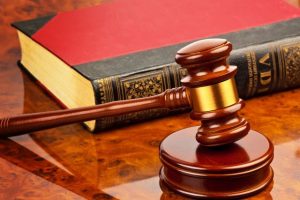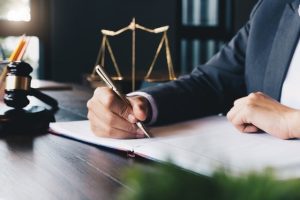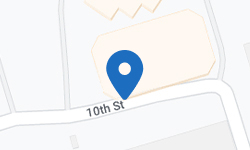What Happens When You Violate Probation?
Understanding Probation in New York
Probation serves as an alternative to incarceration, permitting someone to complete their sentence under close supervision. This is often preferable for individuals seeking to reintegrate into society while maintaining a semblance of normalcy. New York State probation comes with certain responsibilities and conditions.
Probation officers play an integral role in ensuring compliance. They monitor adherence to the terms set by the court. These terms might include mandatory counseling, participation in rehabilitation programs, or engagement in community service.
The length of probation depends on the severity of the offense. Misdemeanor probation is generally shorter than felony probation, as it reflects the lower level of the offense. In New York, DWI-related cases can vary in probation length based on factors such as prior offenses and case circumstances. Understanding these distinctions is essential for navigating the legal process and potential penalties.
Conditions of probation may also involve restitution, where the individual compensates victims, or participation in alcohol treatment if substance abuse is a concern. This aims not only at punishment but also at rehabilitation and improving community safety.
Compliance with these conditions is crucial for successfully completing a probation period and avoiding further legal consequences, including extended probation or even incarceration, depending on the severity of the offense and the court’s discretion.
At Richard Hochhauser, DWI & Criminal Lawyer, we help individuals facing probation violations in New York. Our team provides legal representation and guidance to those accused of breaking probation terms. We work to protect our clients’ rights, explore legal options, and seek the best possible outcome for their case.
Common Probation Violations in New York
Probation violations in New York can lead to serious legal consequences, including stricter supervision, extended probation terms, or even incarceration. Some of the most common violations include:
- Missing meetings with a probation officer: Regular check-ins are a fundamental requirement of probation. Failing to attend scheduled meetings can be seen as noncompliance and may lead to further legal action.
- Failing to pay fines or restitution: Courts often impose financial penalties as part of probation terms. Ignoring these obligations can be considered a violation.
- Not completing court-ordered programs: Many probation agreements require participation in community service, rehabilitation programs, or counseling. Failing to complete these programs as instructed can result in penalties.
- Committing a new criminal offense: Engaging in unlawful activities while on probation is one of the most serious violations and can lead to harsher consequences, including imprisonment.
- Failing a drug or alcohol test: Probation terms frequently include random or scheduled drug and alcohol testing. A failed test is a direct breach of probation conditions and may lead to more severe restrictions or penalties.
- Leaving the state or jurisdiction without permission: Probation usually comes with geographic restrictions. Traveling outside the approved area without prior authorization from the probation officer or court can be considered an attempt to evade supervision.
- Violating a court-issued restraining order: If an individual on probation is subject to a restraining order, any contact with the protected person—direct or indirect—can result in immediate legal consequences.
Each of these violations is addressed in a violation of probation (VOP) hearing, where a judge evaluates the severity of the offense and determines the appropriate penalties. Depending on the circumstances, the court may impose additional probation conditions, extend the probation period, or revoke probation altogether, leading to incarceration.
Legal Consequences of Violating Probation

Violating probation in New York can lead to serious legal consequences. Courts take these violations seriously, as probation is a privilege meant to rehabilitate rather than punish through incarceration. When someone violates probation terms, they might face increased probation terms or additional restrictions, such as stringent curfews or mandatory counseling sessions.
Revocation of probation is another potential consequence. In such cases, the individual may face imprisonment. If the violation involves committing a new crime, additional criminal charges could be filed. This compounds the legal issues and can escalate the severity of the penalties faced by the individual.
Judges play a crucial role in determining the appropriate penalties for probation violations. They consider factors such as the nature of the violation, the individual’s criminal history, and the recommendations of probation officers. The judge may decide to reinstate probation with stricter conditions or impose a sentence that involves jail or prison time.
Probation violation hearings require the prosecution to meet a specific burden of proof. They must demonstrate that the individual breached probation conditions. Possible outcomes of these hearings include reinstating probation with more stringent requirements or enforcing a period of incarceration.
Specific consequences arise when someone violates probation in a DWI/DUI case. These might include ignition interlock device requirements or further license suspensions. If you are accused of violating probation, consulting a DWI probation lawyer may help you navigate the legal process, understand your options, and work toward minimizing the impact of the violation.
Defending Against a Probation Violation Allegation

Navigating a probation violation allegation requires strategic planning and skilled legal representation. A key element in defense is demonstrating no willful violation occurred. We may be able to argue that any breach of probation was unintentional, perhaps due to unforeseen circumstances that were beyond the defendant’s control.
Another critical defense strategy involves questioning the burden of proof. The prosecution must prove the violation occurred, and as your legal team, we may challenge the adequacy of their evidence. An adept criminal defense attorney can help uncover any gaps or inconsistencies in the prosecution’s case.
Demonstrating compliance with probation terms is also essential. Showing that the majority of conditions were met may help mitigate potential penalties. It highlights a commitment to fulfilling obligations, reflecting positively on the accused.
Having an experienced New York criminal defense lawyer is crucial for negotiations. We can advocate for reduced penalties or explore alternative sentencing options. Our role in these proceedings is to provide robust representation, ensuring that the court hears your side comprehensively.
Finding effective legal assistance can be pivotal in these cases. Consider our Nassau County criminal lawyer, who offers tailored legal representation. Armed with experience, we can provide the nuanced defense necessary to confront probation violation allegations effectively.
Contact Richard Hochhauser, DWI & Criminal Lawyer, for Your Probation Violation Case

Navigating a probation violation in New York requires a firm grip on the state’s specific laws and courtroom procedures. At Richard Hochhauser, DWI & Criminal Lawyer, we practice representing clients facing these challenges, leveraging our extensive experience in criminal defense.
Our team, led by Richard Hochhauser, offers tailored legal strategies. Understanding the intricacies of New York’s probation system is vital. This experience allows us to craft a robust defense strategy for those accused of violating probation terms.
We provide immediate legal assistance through free consultations. This allows us to explore the details of your case and formulate a plan of action. Facing probation violation charges can be daunting, but effective legal support is within reach.
If you’re dealing with probation violation issues in New York, take action today. Contact Richard Hochhauser, DWI & Criminal Lawyer, to ensure your rights are safeguarded and to secure the defense you deserve.
Defend Your Future Now: Schedule a Free Consultation

Facing criminal charges in Nassau County requires experienced legal representation to protect your rights and secure the best possible outcome. Don’t navigate the complexities of the legal system alone. Your future is too important to leave to chance—Contact Hochhauser Criminal & DWI Defense today to schedule a free consultation and receive diligent criminal defense representation.
FAQs
while there are many well reputed criminal defense lawyers in Nassau County, finding the right one for you and your case can be daunting. Look for criminal defense attorneys with experience handling your specific charges. Additionally, consider their reputation within the legal community through testimonials, awards, and reviews. You may also need to assess their ability to provide personalized attention to your case.
The cost of hiring a criminal defense attorney in Nassau County can vary based on factors such as the complexity of your case, the attorney’s experience, and the legal services required. Make sure to discuss the fees and payment structure upfront to avoid unpleasant surprises.









